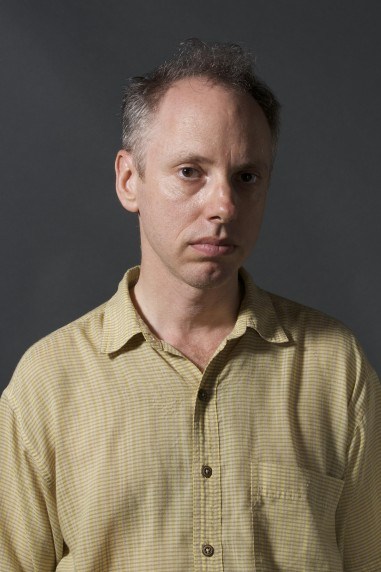| lista | nowsza |

Festival Daily
15 lis 11
Day 1 - Todd Solondz
The second edition of the American Film Festival opens with Dark Horse, the latest feature by acclaimed American director Todd Solondz. It also begins a retrospective of the filmmaker’s career, highlighting one of contemporary cinema’s great satirists, who has done more than most to challenge the conventions of the traditional family drama. International success came early for Solondz, with his sophomore feature Welcome to the Dollhouse (1995). It premiered at the Berlin Film Festival, where it picked up the C.I.C.A.E. award, and scored another success at the Independent Spirit Awards, with its star Heather Matarazzo receiving the Best Debut Performance award. A brilliant and blackly comic account of an awkward youth’s uneasy relationship with her Rockwellian family, it highlighted the director’s skill with actors and also exhibited a dark and often unsettling humour.
Any doubts about Solondz’s talent were dispelled by Happiness (1998), which now ranks as one of the key works of 90s American cinema. If his previous film was a chamber piece, analysing dysfunction within one small family, Happiness offered a tapestry of lives and loves across three generations. The story of three sisters and the lovers, husbands, children and parents who populate their lives, it is a coruscating account of the lies we tell each other – and ourselves – in order to exist from day-to-day. Again, the director draws out a series of stunning performances, most memorably from the previously little-known Dylan Baker, whose veneer of respectability as a loving father and family man is soon erased, revealing a paedophile who abuses his son’s friend. The most controversial narrative thread in the film, it also shows Solondz at the height of his powers; the story was the first in mainstream cinema to face up to paedophilia without descending into hysteria, suggesting that outrage leads nowhere without understanding. Storytelling (2001) saw Solondz depart from a conventional narrative arc and towards a more challenging form of dramatic structure. The film presents two stories, ‘Fiction’ and ‘Non-Fiction’, which once again attack the vagaries of middle-class suburban life, but also comment on the director’s own work and his penchant for broaching taboos. It even features an hilarious parody of a contemporary film whose director attacked Solondz’s films (a sequence few will fail to pick up on). Some critics railed against Storytelling, seeing it as little more than an attempt to shock our sensibilities. But in the decade since the film was made, it has rightly been acknowledged as a key work in understanding Solondz’s approach and the closest he has come to analysing his methods. The play with narrative structure continued with Palindromes (2004), a brutal assault on the arguments for and against abortion, in which the central character is played by various actors of different age, gender and ethnicity. What shocked many was Solondz’s levelling the playing field – attacking liberal attitudes with as much venom as the more conventionally ridiculed conservative viewpoint. Like Tony Kaye’s exhaustive documentary on the subject, Lake of Fire (2006), Solondz’s decision to find fault on both sides of the fence makes for a richer experience and Palindromes deserves to be seen as a major contribution to an incendiary subject. Life During Wartime (2009) reunited Solondz with many of the characters from Happiness, albeit played by a different cast. A number of situations are familiar (the blistering opening scene from the first film is repeated, to even more cringe-worthy effect, with Shirley Henderson replacing Jane Adams and Michael Kenneth Williams taking over from the suicidal John Lovitz, whose ghostly character is played by Paul Reubens), but the tone of the film is darker, with the sisters even more distant from each other and the characters search for solace or companionship left foundering. Dark Horse premiered at the Venice Film Festival in September. It sees the director return to a smaller canvass, as he tells the story of Abe, a balding thirtysomething who avidly collects toys and still lives at home with his parents (played by Mia Farrow and a scene-stealing Christopher Walken). Like the other films playing in the retrospective, dark Horse blends detailed characterisation, black humour and a concern for the way we live our lies. It also shows what a unique presence Todd Solondz is in contemporary cinema. Ian Haydn Smith |
Moje AFF
Strona archiwalna 2. edycji (2011 rok)
Przejdź do strony aktualnej edycji festiwalu:
www.americanfilmfestival.pl Nawigator
listopad 2011


Szukaj
filmu / reżysera / koncertu:
|



